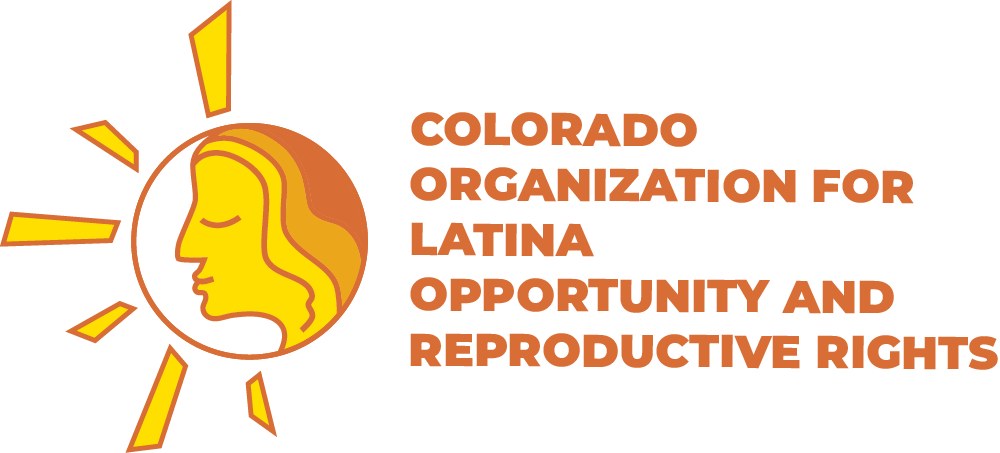Debemos hacer más para eliminar las barreras al voto
COLOR insta a los legisladores a garantizar el acceso a papeletas multilingües como primer paso para cerrar la brecha en el acceso al sistema político que impacta nuestra vida diaria.
(Denver, Colorado) – Declaración de Katherine Riley, directora de políticas de la Organización de Colorado para las Oportunidades y los Derechos Reproductivos de las Latinas (COLOR) sobre la audiencia sobre el Proyecto de Ley 1011 de la Cámara de Representantes, que exige papeletas electorales multilingües:
“En definitiva, hay un pequeño grupo de personas que pueden tomar decisiones importantes sobre nuestras vidas. Los políticos aprueban leyes que determinan quién obtiene seguro médico o quién puede permitirse buscar atención de salud reproductiva como la anticoncepción o el aborto. Promueven políticas que limitan la financiación de programas que ayudan a las personas a poner comida en la mesa o que determinan estándares en torno a una vivienda justa y asequible. Establecen reglas sobre inmigración y deportación y sobre si las familias seguirán siendo separadas. Impulsan regulaciones sobre cómo se tratará a las personas embarazadas en las cárceles o cómo abordaremos o no la muy real crisis de mortalidad materna que enfrentan las mujeres negras y las mujeres de color en este país. Lo que está en juego en las decisiones del proceso político es mucho, especialmente para la comunidad latina.
Se supone que el sistema debe estar ahí para satisfacer las necesidades de las personas y ser una democracia representativa. El problema es que poco a poco se ha ido eliminando la capacidad de cada persona de elegir libremente a quién votar. Podemos y debemos hacer más para garantizar que todos tengamos voz y voto en cuanto a quién se sienta en las mesas y llega a los pasillos del poder. Por eso, COLOR se enorgullece de manifestarse en apoyo del Proyecto de Ley 1011 de la Cámara de Representantes, que exige el acceso a las papeletas de votación en varios idiomas.
Debemos hacer todo lo posible para garantizar que un trozo de papel no determine cómo son tratadas las personas y que, independientemente de la documentación, todas las personas en nuestro estado estén protegidas y tengan garantizados la salud básica, los derechos y la dignidad.
Cada 30 segundos, una persona latina cumple 18 años y se vuelve elegible para votar. Eso es alrededor de 66.000 personas cada mes según el Pew Research Center. Se trata de un gran bloque que necesita tener voz en el proceso y, sin embargo, en una encuesta de 2016, 1 de cada 6 encuestados latinos informó que la “falta de asistencia o materiales en español” era una barrera para votar.
Ignorar las necesidades lingüísticas de nuestras comunidades es ignorar el derecho a participar en el sistema, así de simple. Ofrecer apoyo para el acceso al idioma crea la oportunidad de garantizar que en todos los distritos se escuchen las voces del pueblo. Significa garantizar que las personas elegidas representen verdaderamente la voluntad del pueblo.
Reconocemos que puede haber preguntas sobre cuál es la mejor manera de financiar o estructurar estos esfuerzos, pero debemos encontrar las soluciones y avanzar para satisfacer esta necesidad. La justicia lingüística es un desafío muy real en todos los sistemas y sectores de nuestro estado que, francamente, no parecen abiertos o accesibles para muchas personas. Debemos hacerlo mejor.
Un valor fundamental y poderoso de un proceso democrático es que las personas puedan participar libre y abiertamente. Ofrecer papeletas multilingües y otros materiales electorales traducidos respalda esta oportunidad y puede crear un sentimiento de aceptación en su distrito y en todo el estado. Mientras lidiamos con preguntas sobre cómo garantizar que nuestros sistemas políticos funcionen para todos y representen las necesidades de toda la comunidad, este es un paso simple, pero importante, que podemos dar”.
###
Katherine Riley está disponible para entrevistas a pedido.

